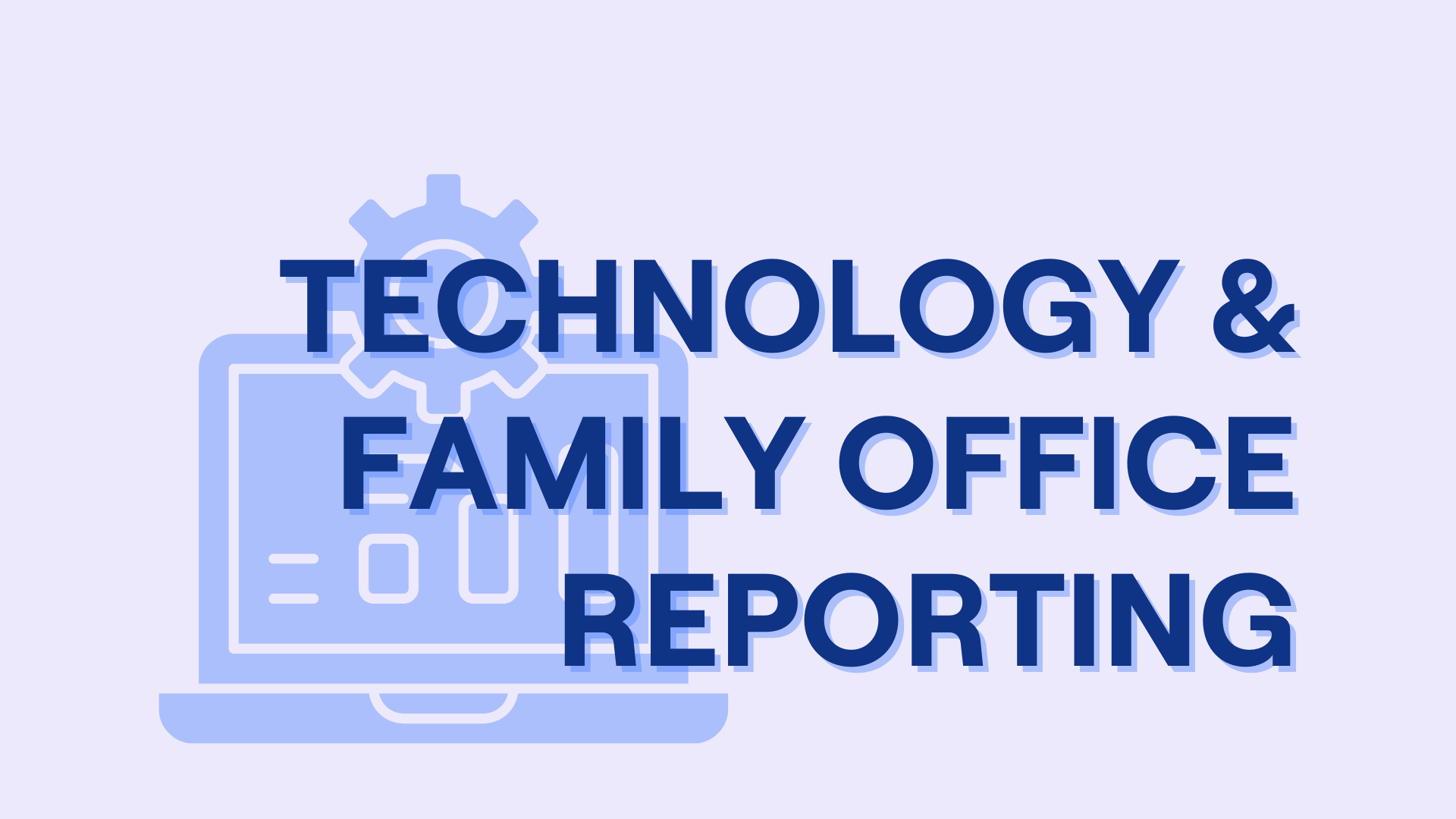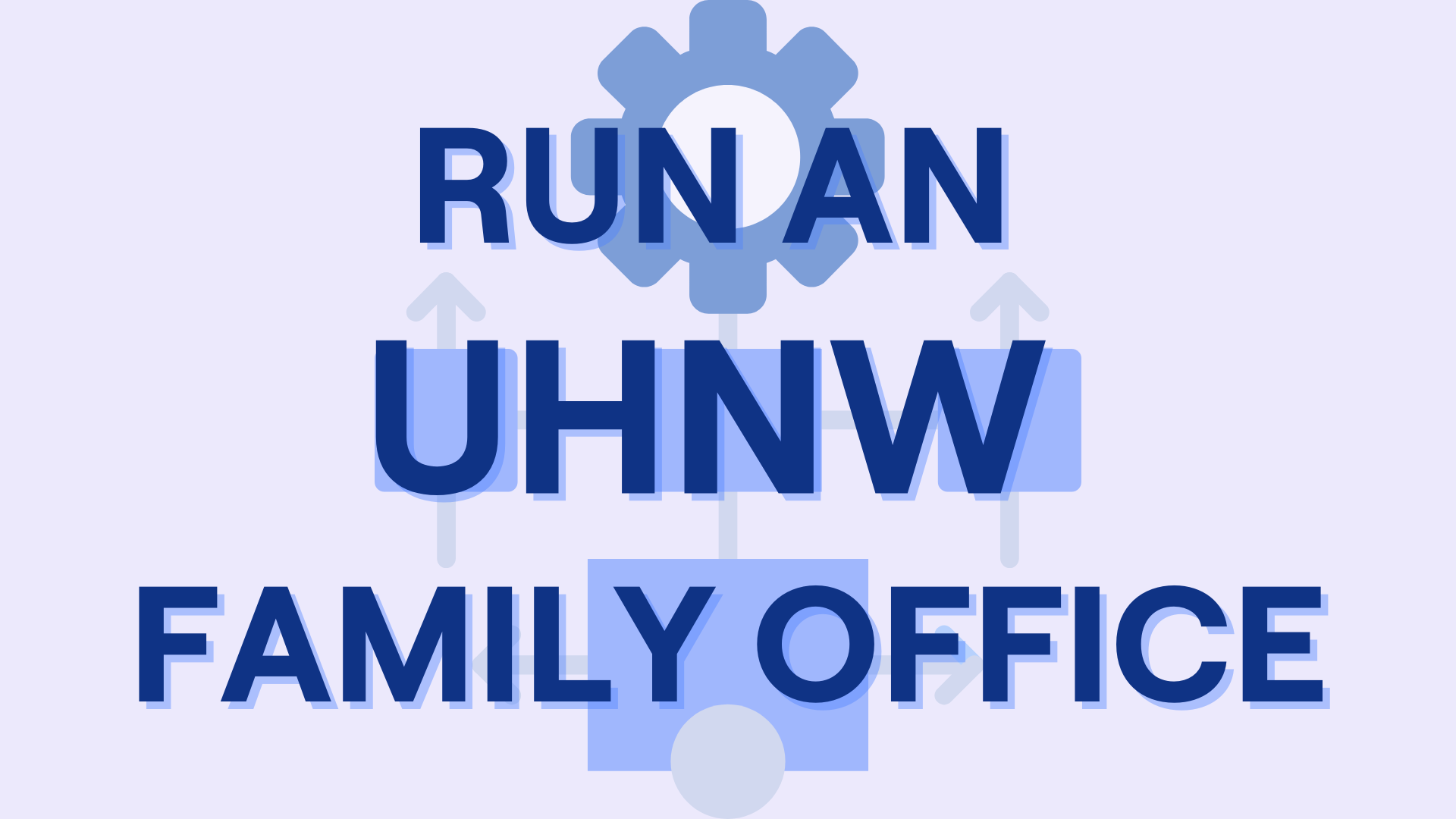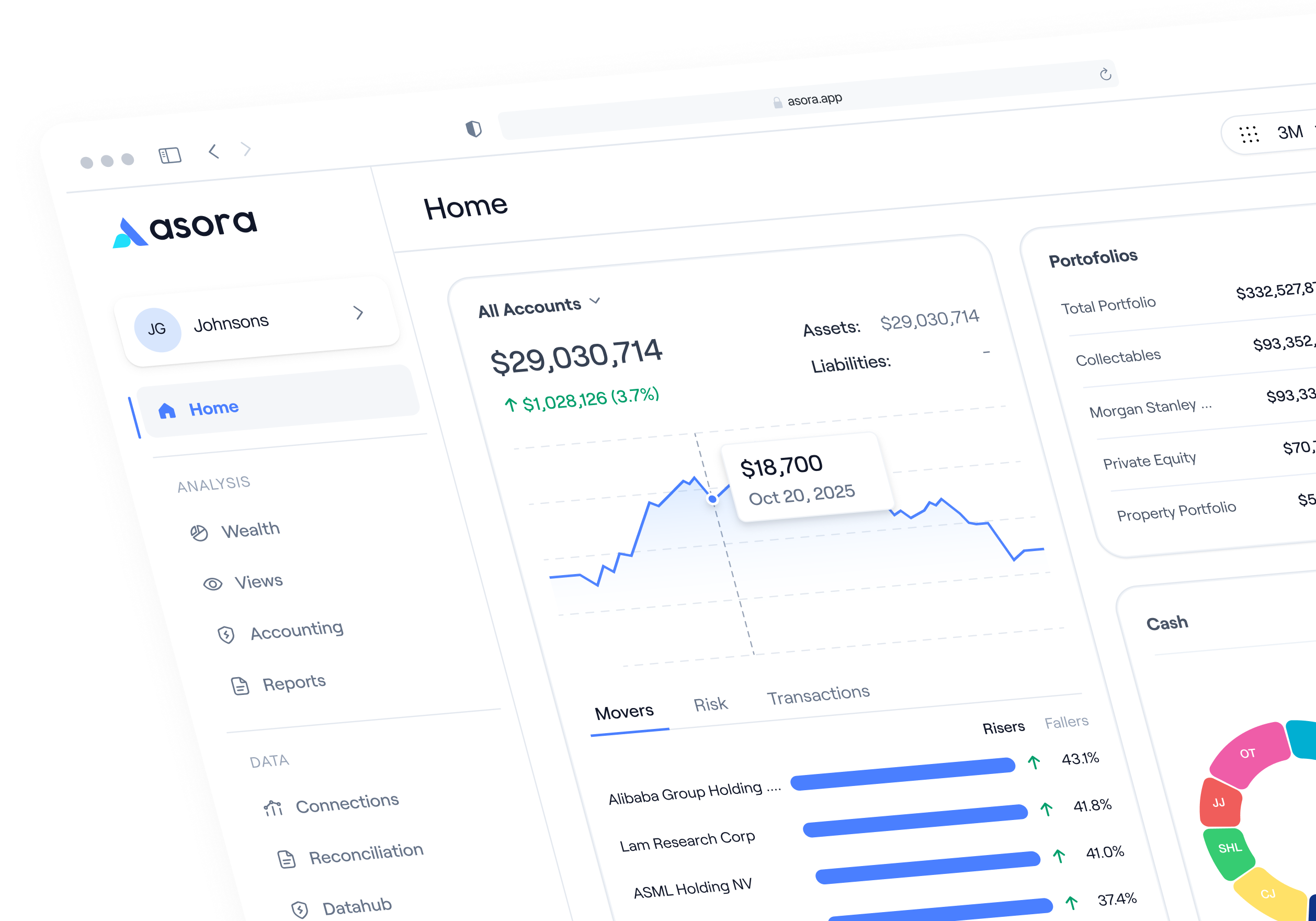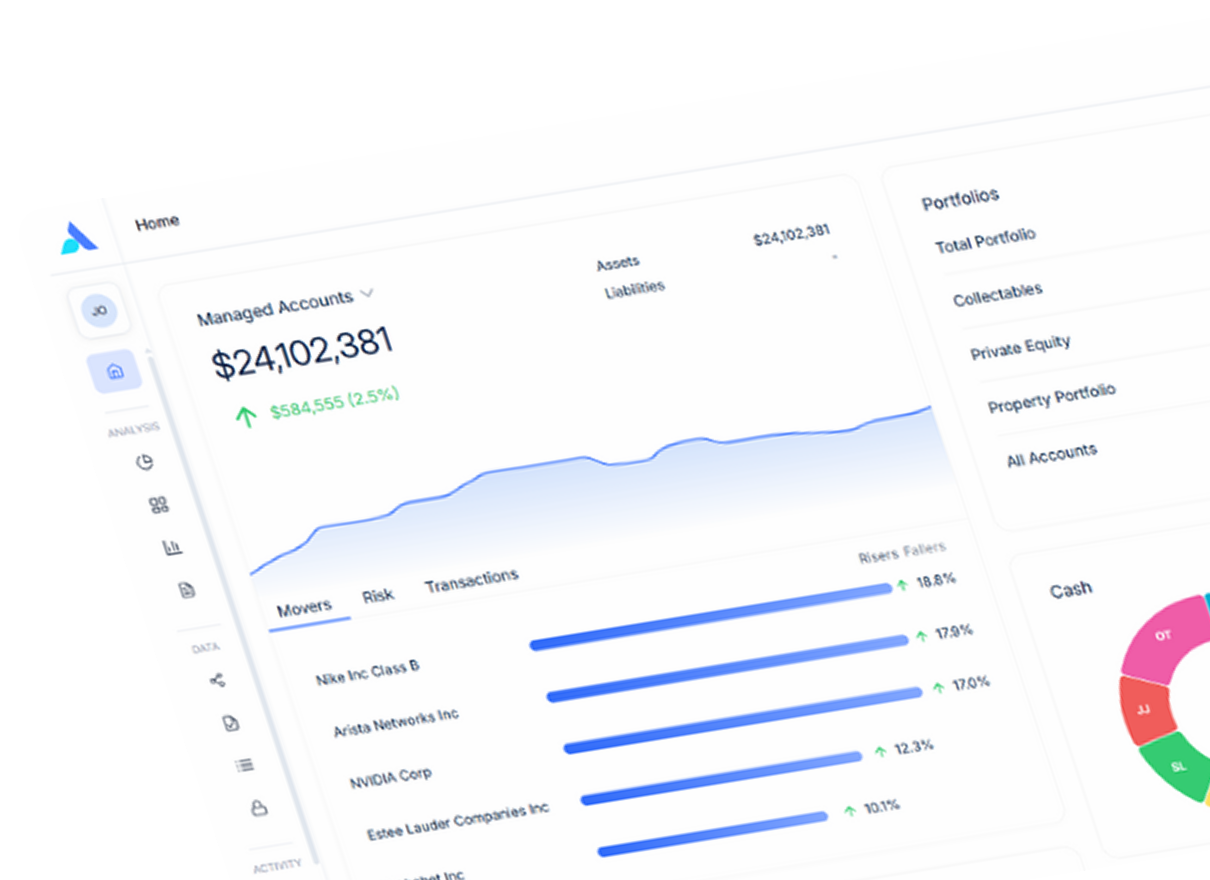Automate your family office
Schedule DemoHeading 1
Heading 2
Heading 3
Heading 4
Heading 5
Heading 6
Lorem ipsum dolor sit amet, consectetur adipiscing elit, sed do eiusmod tempor incididunt ut labore et dolore magna aliqua. Ut enim ad minim veniam, quis nostrud exercitation ullamco laboris nisi ut aliquip ex ea commodo consequat. Duis aute irure dolor in reprehenderit in voluptate velit esse cillum dolore eu fugiat nulla pariatur.
Block quote
Ordered list
- Item 1
- Item 2
- Item 3
Unordered list
- Item A
- Item B
- Item C
Bold text
Emphasis
Superscript
Subscript
TL;DR
Family office reporting has evolved from manual spreadsheets to automated reporting software that directly connects to multiple data sources, including banks and custodians. Modern investment reporting technology, such as Asora, reduces manual data entry, provides timely updates, enables customized reports for various stakeholders, and reduces reporting time from days to minutes.
Stop the Reporting Scramble
Ask any family office team what consumes most of their time, and reporting will likely be near the top of the list, preventing the team from generating actionable insights. Quarterly reports that take days to compile. Monthly updates require hours of data gathering. Ad-hoc requests from principals send them scrambling through spreadsheets.
The traditional approach to family office reporting (manual data collection, Excel consolidation, PowerPoint assembly, and other financial processes ) worked for decades. But it doesn't scale. As portfolios become increasingly complex and stakeholder expectations rise, manual reporting becomes a bottleneck that limits what your family office can accomplish.
Technology is changing this. Not through incremental improvements to spreadsheets, but through fundamental shifts in how family offices collect, analyze, and share financial data.
Below, we’ll show you how reporting software and automated reporting tools transform family office operations (and what this means for your team).
The Traditional Family Office Reporting Challenge
Your family's wealth is spread across multiple custodians, banks, private equity funds, real estate holdings, and alternative investments. Each source maintains data differently, making it difficult to obtain up-to-date information. Some provide daily feeds, others quarterly statements. Some use standardized formats, others send PDFs that require manual extraction.
Creating a consolidated view means:
- Logging into multiple portals to download statements
- Manually entering data from PDFs into spreadsheets
- Reconciling discrepancies between sources
- Calculating performance across different asset classes
- Reformatting everything into presentable reports
- Distributing reports to stakeholders with different needs
This reporting process consumes a significant amount of time from your team. And by the time you finish compiling a report, the data is already outdated.
Additionally, most of this work is repetitive, particularly in report creation. You're doing essentially the same data collection and formatting tasks every reporting cycle, with minimal variation.
That's where automated reporting can help.
What is Automated Reporting for Family Offices?
Automated reporting means using financial reporting software to handle the repetitive parts of your reporting process (data collection, standardization, calculation, and report generation) with minimal manual intervention, and it can serve as a powerful data visualization tool.
Instead of downloading statements and copying data into spreadsheets, automated reporting tools connect directly to your data sources, eliminating the need for manual data entry. They automatically pull information, standardize formats, perform calculations, and generate reports on demand.
The shift from manual to automated reporting eliminates the tedious data operations that consume your team's time, allowing them to focus on financial analysis and strategic decision-making.
Here's what changes with report automation:
- Data collection: Automated data aggregation from multiple portals instead of manual downloads.
- Data entry: Direct feeds instead of typing numbers into spreadsheets.
- Calculations: Automated performance metrics instead of manual formulas.
- Report generation: On-demand dashboards instead of rebuilding PowerPoints.
- Distribution: Secure portal access instead of emailing PDF attachments.
The result is faster reporting, improved data accuracy, and a team that focuses on strategy.
How Investment Reporting Software Transforms Family Office Operations
While it might sound like hyperbole that reporting software can transform how family offices work, it’s not an exaggeration. Here are real-world examples that show how:
1. Streamlined Data Aggregation Eliminates Manual Work
The foundation of better reporting is automated data collection. Modern investment reporting solutions connect to banks, custodians, and investment platforms through direct feeds.
These connections automatically pull position data, transaction history, and market values. What used to require logging into five different portals and downloading spreadsheets now happens in the background.
For private assets without direct feeds, good reporting technology provides standardized templates for data import.
Data aggregation is the first step. Once your data flows automatically into a centralized system, everything else becomes easier.
2. On-Demand, Up-to-Date Visibility Beats Static Reports
Traditional reporting operates on fixed cycles, including monthly, quarterly, and annual cycles. You compile data, create reports, distribute them, and then wait for the next close. However, report automation tools can help streamline and enhance these processes.
Modern platforms shorten that cycle. As bank and custodian feeds refresh and new documents are added, you can generate current (as-of-last-update) reports whenever needed. No month-end wait. No one-off spreadsheets are built for ad hoc questions.
For investment teams, this means evaluating opportunities with the latest synced positions, valuations, and cash movements, rather than relying on week-old exports. For principals, it means an up-to-date view of their wealth without relying on stale snapshots.
3. Customized Reports Serve Different Stakeholders
Family offices serve diverse audiences: principals who require high-level summaries, next-generation family members learning about wealth management, CFOs needing detailed transaction information, and tax advisors requiring specific data cuts.
With manual reporting, creating multiple report versions means duplicating work. Each stakeholder receives a custom Excel file or PowerPoint presentation, all of which require separate maintenance and upkeep. Whereas reporting software and interactive dashboards can provide dynamic views for stakeholders.
Financial reporting software lets you create different views of the same underlying raw data. You define the data structure once, then create custom reports for different audiences:
- Executive summaries showing total wealth and top-level allocations
- Detailed key performance indicator reports with attribution data analysis
- Cash flow reports detail business performance
- Entity-level views for governance or tax purposes
- Asset class breakdowns for investment committee review
Performance monitoring becomes more flexible when you can slice data in different ways without rebuilding your entire reporting infrastructure.
4. Better Transparency Improves Communication
When reports are stored as email attachments or in Excel files, it is difficult for everyone to view the same information.
Did everyone get the latest version? Which report did they reference in that conversation? What assumptions went into those calculations?
Modern reporting software provides a single source of truth accessible to authorized stakeholders, facilitating the generation of valuable insights. Instead of emailing reports, you grant access to dashboards where users can view up-to-date data.
This transparency improves communication in several ways:
- Discussions reference shared data rather than potentially different reports
- Questions get answered faster when principals can check information themselves
- Advisors stay aligned on the current wealth position
- Family members can explore information at their own pace
Plus, you don’t risk sharing private reports or credentials in back-and-forth emails. It’s a win-win.
5. Risk Management Benefits From Better Data
Understanding risk exposure requires accurate, current data across all investments. When information is fragmented or outdated, risk management becomes little more than guesswork.
Automated reporting tools offer consolidated views, making risk analysis more practical. You can see:
- Total exposure across similar positions held in different accounts
- Geographic or sector concentrations across public and private holdings
- Liquidity profiles showing how much capital is committed versus available
- Performance across managers or strategies
This visibility doesn't automatically lead to better risk decisions, but it provides the information foundation that those accurate, data-driven decisions require.
For family offices with significant alternative investments and customer data, tracking capital calls and distributions becomes critical. Automated reporting platforms maintain this information systematically rather than relying on email tracking and spreadsheet updates.
6. Compliance and Audit Readiness Improve
Family offices face compliance requirements, including tax reporting across jurisdictions, regulatory filings for specific investment structures, and audit documentation for governance purposes.
When your data resides in spreadsheets, creating audit trails can be a challenging task. Which version of which file was used for what report? How were specific calculations performed? Can you recreate last year's reports with the same methodology?
Well-designed financial reporting platforms can maintain detailed histories in which transactions, valuations, and specific calculations are timestamped and traceable, improving audit readiness compared with spreadsheet-based processes. This doesn't eliminate compliance work, but it integrates seamlessly with existing systems, making it much simpler to demonstrate your process.
For accounting functions, having structured data that feeds tax preparation and financial reporting tools saves time during filing season.
7. Data Security Strengthens with Proper Systems
Email attachments containing financial reports create security vulnerabilities. Spreadsheets containing sensitive data are stored on laptops. Multiple people have login credentials to financial accounts for data collection.
Moving to automated reporting platforms with proper security controls addresses many of these issues:
- Data is encrypted in transit and at rest
- Access controls limit who sees what information
- Audit logs track data access (where available)
- Two-factor authentication protects accounts
- Secure document storage eliminates emailed attachments
Security improves while the user experience gets easier. Stakeholders simply access information through secure portals rather than receiving emailed files.
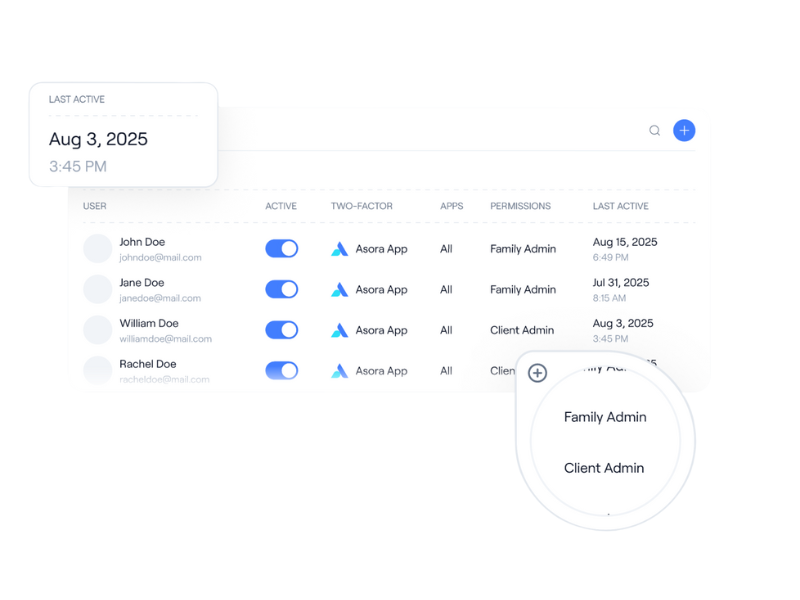
8. Teams Focus on Analysis Instead of Data Operations
Perhaps the most significant change is that your team spends time differently.
Instead of days each month on data collection and report assembly, automated reporting handles these tasks. Your team reviews the data, investigates anomalies, analyzes trends, and develops real-time insights.
This shift from data operations to analytical work enables a lean family office team to accomplish more. The exact headcount delivers more business intelligence value because technology handles the mundane, repetitive work. Now, your teams can focus less on data integration and more on analyzing data and making informed decisions.
Choose the Right Reporting Software for Your Family Office
Not all automated reporting tools are created equal. Here's what to look for when evaluating financial reporting software:
- Direct data connections: Can the platform connect to your existing custodians and banks? How many connections does it support? What happens when you add new accounts?
- Multi-asset class support: Family offices typically hold a diverse range of assets. Does the platform handle public equities, bonds, alternatives, real estate, and private holdings in a unified way?
- Flexible reporting: Can you create the specific reports your stakeholders need? Is customization easy, or does it require technical expertise? Can you export data when needed?
- Performance calculation: How does the platform calculate returns? Does it support both time-weighted and internal rate of return methodologies? Can you benchmark against relevant indices?
- User experience: Is the interface intuitive? Can principals access timely information on mobile devices? Does the platform overwhelm users with complexity, or does it clearly surface the most critical information?
- Security and compliance: What certifications does the platform maintain? How does it handle data encryption? What access controls exist?
- Scalability: Will the platform grow with your family office? What happens as you add entities, accounts, or users?
- Pricing transparency: How is pricing structured? Are costs predictable as your portfolio grows?
Platforms like Asora are explicitly designed for family offices, addressing these requirements without the complexity typically associated with institutional-grade systems used for much larger operations.
Common Concerns About Automated Reporting
Family offices considering reporting software often have similar concerns:
"Will this require a complete overhaul of how we work?"
No. Good platforms integrate with your existing processes. You can start with automated data collection while maintaining your current reporting format, then gradually adopt platform-native reports as you're ready.
"What if the technology is too complex for our team?"
Modern reporting software emphasizes usability. If your team can use spreadsheets, they can use reporting software. The learning curve for basic functionality is typically days, not months.
"Can we handle implementation ourselves, or do we need consultants?"
Most family office reporting solutions include implementation support. You'll work with their team to connect accounts, set up reports, and provide training to users. Consultants aren't typically required.
"What happens to our historical data?"
Most platforms can import historical data, although the ease of use varies. At a minimum, you'll want to import opening positions. The full transaction history import depends on the quality of your data and the extent to which you want to go back in time.
"Is this only for large family offices?"
Automated reporting makes sense for family offices of various sizes. The determining factor isn't assets under management—it's whether you're spending significant time on manual reporting that could be automated, thereby hindering growth.
The Future of Family Office Financial Reporting
Reporting technology continues to evolve. Here are trends shaping the next generation of family office reporting:
- AI-assisted analysis: Moving beyond data presentation to automated insight generation, anomaly detection, and suggested actions based on portfolio changes.
- Enhanced mobile experiences: Principals increasingly expect to review wealth information from phones and tablets, not just desktop computers.
- Integrated workflows: Reporting platforms expanding to include workflow management and collaboration features that connect reporting to action.
- Improved private asset handling: Better automation for private equity, venture capital, and real estate data that currently requires more manual input.
- Sustainability and impact reporting: As families focus more on ESG considerations, reporting solutions add capabilities to track and report on sustainability metrics alongside financial performance.
- Embedded analytics: More sophisticated analysis tools that let users explore data interactively rather than just viewing static reports.
Better Reporting Starts with Better Reporting Tools
Family office reporting doesn't need to be a monthly struggle involving spreadsheets, manual data entry, and days of work to produce outdated documents before they're distributed.
Investment reporting technology has reached the point where automation is accessible, practical, and affordable for family offices of all sizes.
Asora was explicitly built to modernize family office reporting. With automated data aggregation, customizable reporting, and an intuitive interface, it addresses the challenges outlined in this article.
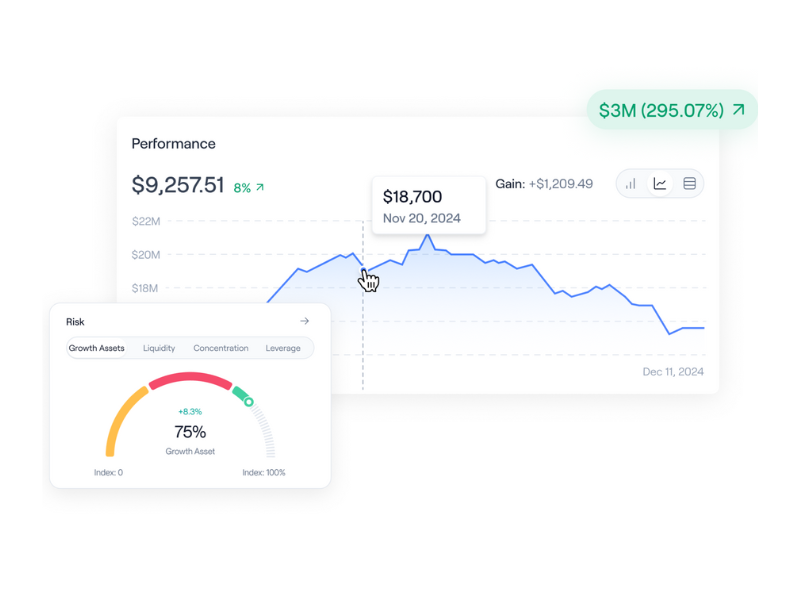
If your team is spending more time on data operations than analysis, if stakeholders want current information rather than static reports, or if you're simply tired of the manual reporting grind, it's worth exploring what modern reporting software can do for your family office.
Schedule a demo to see how automated reporting could transform your operations.
FAQ
Q. What is the proper automated reporting tool for family offices?
Automated reporting utilizes software to handle data collection, standardization, calculations, and report generation, significantly reducing manual steps. Instead of downloading statements and copying data into spreadsheets, tools connect to banks and custodians, automatically pull information, and produce reports on demand.
Q. How does investment reporting technology improve data accuracy?
It improves accuracy by eliminating manual entry, standardizing data across multiple sources, validating data upon import, and maintaining a complete transaction history for reconciliation. Asora supports these controls, enabling teams to transition from source transactions to audit-ready reports.
Q. What should family offices look for in financial reporting software?
Seek direct connections to your banks and custodians, support for multiple asset classes including private investments, and flexible reporting that tailors views for different stakeholders. Asora covers bankable and private assets, supports multi-entity consolidation, and lets teams link supporting documents to positions so evidence is available alongside the data..
Q. Can automated reporting tools handle private investments and alternative assets?
Yes, with a different workflow from liquid assets. Custodian feeds cover public holdings, while private assets are loaded via structured templates and maintained with periodic updates. Good platforms make this easy with validation rules and tools for tracking commitments, capital calls, distributions, and valuations over time.
Q. How long does it take to implement reporting software in a family office?
Implementations typically take 4 to 8 weeks for core reporting, which begins with connecting liquid accounts and replicating current reports. Many offices run new and existing processes in parallel before switching to a single system entirely. Timelines vary depending on the portfolio complexity, the number of data sources, and the depth of historical data to be imported.

